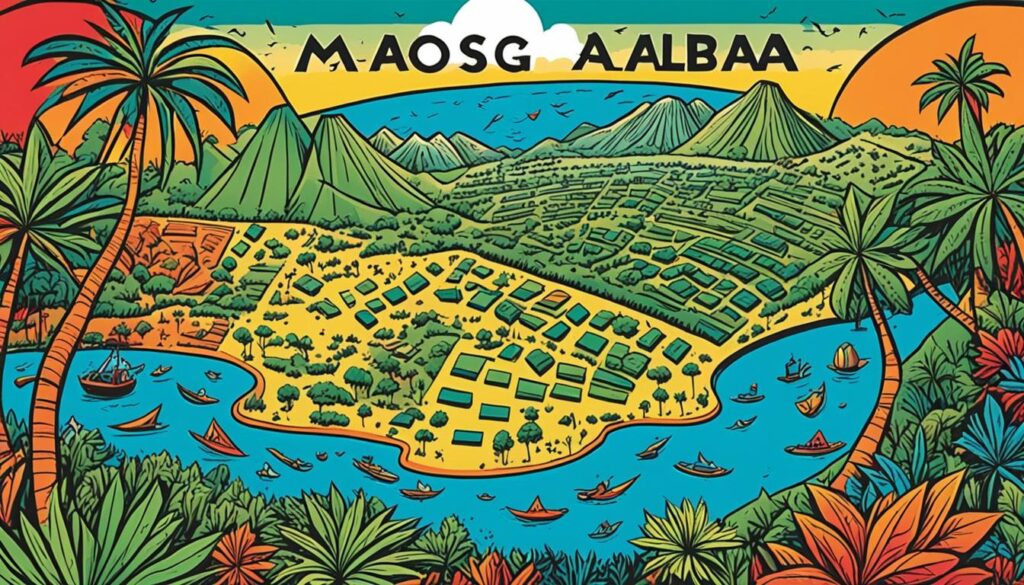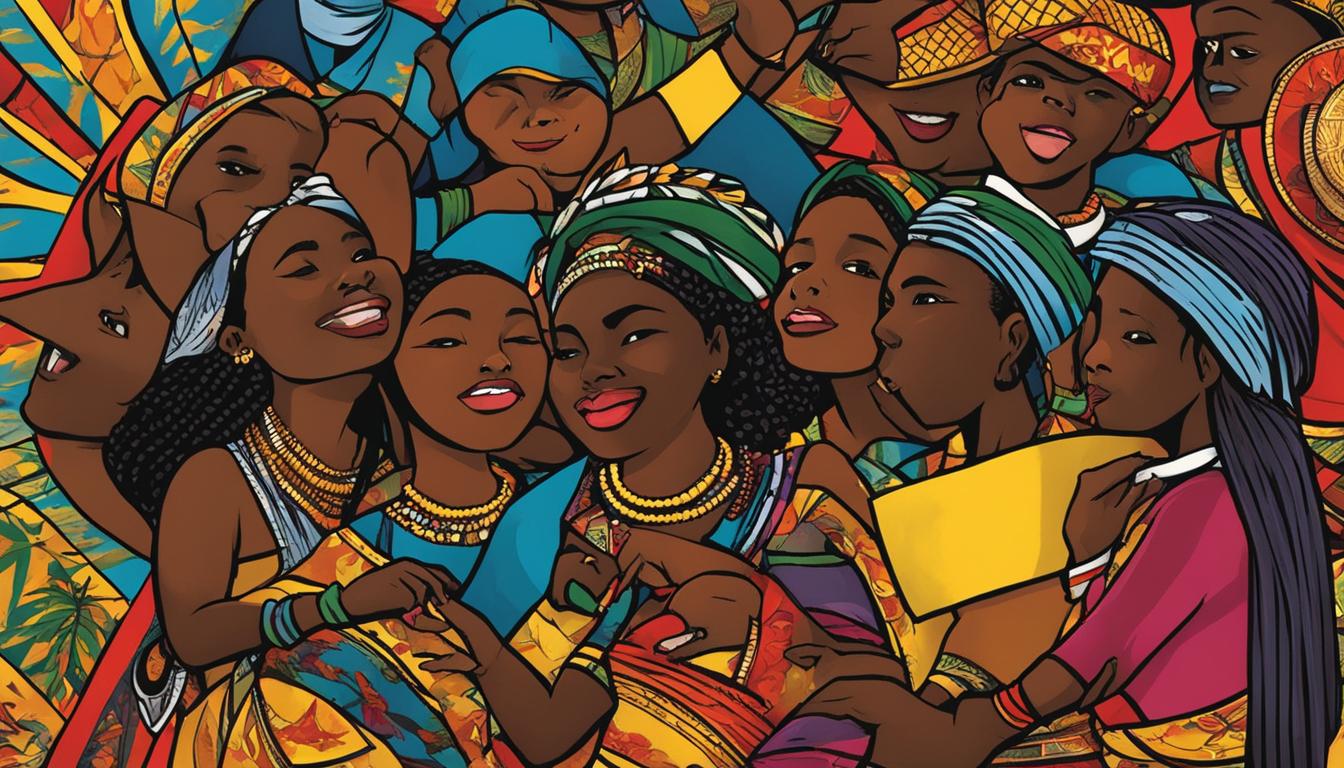Did you know that the Ronga language, a unique Bantu language, is spoken by approximately 720,000 people in Mozambique and 90,000 people in South Africa? This vibrant language, also known as the Ronga dialect, is an essential component of the cultural heritage and linguistic landscape of Mozambique. In this article, we will explore the rich history, characteristics, and resources available for learning and engaging with the Ronga language and its fascinating culture.
History of the Ronga Language
The Ronga language has a fascinating history that spans generations and carries immense cultural significance in Mozambique. It serves as a linguistic heritage for the Ronga people, playing a vital role in preserving their rich cultural traditions.
Throughout its history, the Ronga language has not only evolved naturally but has also been influenced by external factors such as Portuguese. This influence is a result of Mozambique’s geographical proximity to the capital city of Maputo and the historical interactions between the Ronga people and Portuguese-speaking communities.
Over the years, efforts have been made to document and study the Ronga language, recognizing its linguistic heritage and cultural significance. These endeavors are crucial in ensuring the preservation of the language and promoting its importance within the broader Mozambican cultural landscape.
By delving into its history, researchers and linguists contribute to the understanding and appreciation of the Ronga language as a vital component of Mozambique’s cultural heritage. The insights gained from these studies shed light on the language’s development, unique characteristics, and its role in shaping the identity of the Ronga people.
Characteristics of the Ronga Language
The Ronga language showcases unique characteristics in its alphabet, phonology, and grammar. These features contribute to its distinctiveness and make it a fascinating language to explore.
Ronga Alphabet
The Ronga language has its own alphabet, which bears similarities to the alphabet used in the Tsonga language. The alphabet consists of a combination of consonants and vowels that are essential for written communication in Ronga. Here is a table displaying the Ronga alphabet:
| Consonants | Vowels |
|---|---|
| b | a |
| d | e |
| f | i |
| g | o |
| h | u |
| j | |
| k | |
| m | |
| n | |
| p | |
| r | |
| s | |
| t | |
| v | |
| y | |
| z |
Phonology and Sounds
The Ronga language has a diverse range of vowel and consonant sounds, contributing to its melodic and rhythmic qualities. The phonology of Ronga allows for expressive communication and lends beauty to the spoken language. Examples of notable sounds in Ronga include:
- The vowel sounds a, e, i, o, and u with distinct pronunciations
- The consonant sounds b, d, f, g, h, j, k, m, n, p, r, s, t, v, y, and z
Ronga Grammar
The grammar of Ronga is closely related to the Tsonga language, displaying similarities in noun class systems and verb forms. This parallel allows for easier understanding and learning for those already familiar with Tsonga. The Ronga language follows specific rules and patterns in constructing sentences, making it a structured and systematic language.

The Ronga language holds immense cultural significance, and its alphabet, phonology, and grammar contribute to its uniqueness. Exploring these characteristics allows one to dive deeper into the linguistic wonders of Ronga.
Ronga Language Resources and Learning Opportunities
For individuals interested in learning the Ronga language, there are resources available to facilitate the learning process. These resources include language courses, dictionaries, and online materials. Additionally, translation services are available for those in need of Ronga translation. These resources aim to promote the preservation of the Ronga language and provide opportunities for individuals to engage with the language and its cultural heritage.
Conclusion
In conclusion, the Ronga language holds immense significance within Mozambique’s linguistic and cultural landscape. It is an integral part of the country’s heritage and is deeply rooted in the traditions of the Ronga people. Through the dedicated efforts of its community of speakers and researchers, the language has been preserved and continues to thrive.
By exploring and engaging with the Ronga language, individuals have the opportunity to not only contribute to the preservation of this linguistic treasure but also to gain a deeper understanding of Mozambique’s diverse heritage. Learning about the history, phonology, and grammar of the Ronga language opens doors to a wealth of cultural knowledge and insights into the Ronga people’s way of life.
With the availability of resources such as language courses, dictionaries, and online materials, learning Ronga has become more accessible than ever. Additionally, translation services provide avenues for cross-cultural communication and understanding. Embracing the Ronga language not only fosters linguistic appreciation but also facilitates cultural exchange and strengthens connections between communities.
In conclusion, the Ronga language is an invaluable asset that deserves recognition and preservation. By supporting the efforts to promote and learn the Ronga language, individuals can actively contribute to the cultural richness of Mozambique and help ensure the legacy of this remarkable language lives on for generations to come.
FAQ
What is the Ronga language?
The Ronga language is a Bantu language spoken in Mozambique, primarily in the southern region near the city of Maputo. It is also spoken to a lesser extent in South Africa. The language has approximately 720,000 speakers in Mozambique and around 90,000 speakers in South Africa.
What is the history and cultural significance of the Ronga language?
The Ronga language has a rich history and holds great cultural significance in Mozambique. It has been spoken by the Ronga people for generations and has played a key role in preserving their cultural traditions. The language has also been influenced by Portuguese due to its proximity to the capital city of Maputo.
What are the characteristics of the Ronga language?
The Ronga language has its own alphabet, unique phonology, and grammar closely related to Tsonga. It is known for its melodic and rhythmic qualities, making it a beautiful and expressive means of communication.
Are there resources available for learning the Ronga language?
Yes, there are resources available to facilitate the learning process for the Ronga language. These resources include language courses, dictionaries, and online materials. Additionally, translation services are available for those in need of Ronga translation.
How can learning the Ronga language contribute to cultural preservation?
Learning about and engaging with the Ronga language allows individuals to contribute to the preservation of this linguistic treasure and gain a deeper understanding of Mozambique’s diverse cultural heritage. It helps in promoting the preservation of the Ronga language and provides opportunities for individuals to engage with its cultural importance.
